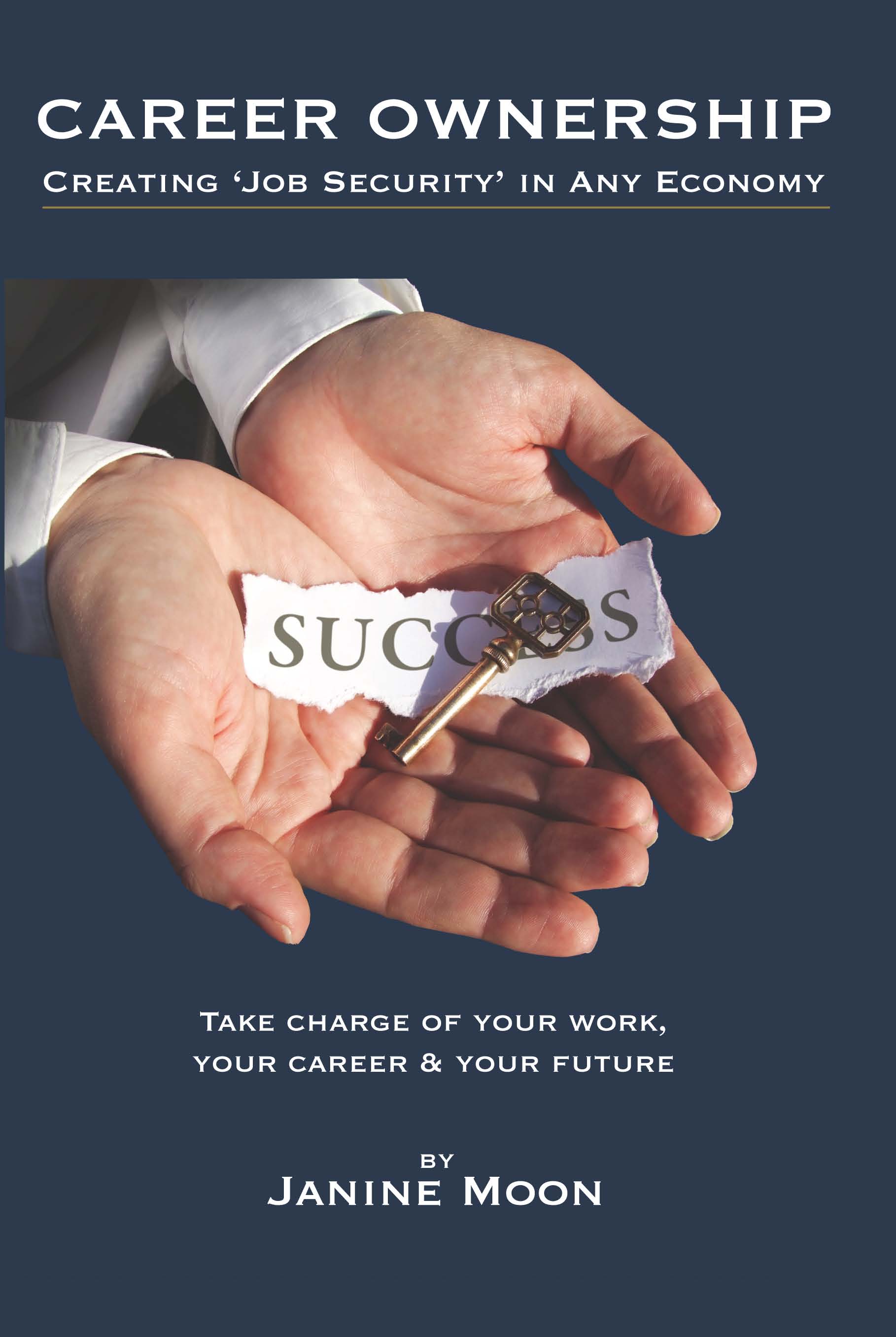We all want work-life balance. We recognize that the best employers have flexible scheduling and acknowledge that employees have a life outside of work. In fact, ‘work-life effectiveness’ is the current phrase and I like that: it recognizes that ‘balance’ is tenuous and short-lived, while effectiveness / results is the real goal.
Do you know about the ROWE approach taken by Best Buy? ROWE is Results Only Work Environment and in its application, employees are expected to get results v. showing up for their assigned shift and putting in their time. [Note: ROWE is a business strategy that’s been shown to improve productivity by 40% and reduce turnover by up to 90%…nice numbers by anybody’s measure.]
When employers get to the place that results are what counts (v. time or dues or politics), they will be ready to recognize that something I’ll call Career Health goes a long way toward driving those results. When employees partner with employers on their career paths, they provide results that consistently make for a win-win.

Career Health Matters
To be healthy, or effective in your work, you must pay attention to 4 areas: physical, mental, spiritual and emotional. Each of these areas has two aspects that you—regardless of your position or job—can assess, leverage and strengthen. You might decide that your career health can be improved in your current job and organization or you might find that another direction serves you best
Physical effectiveness means Energy and Resilience.
From a physical perspective, you are most effective when you are energized by your work and you can manage the stress associated with it. When your work energizes, you’re able to be creative and step into challenging and unfamiliar situations with confidence. Even if you’re doing work that doesn’t naturally energize you or that is highly stressful, you can take steps to neutralize that. Resilience means having the ability to handle life’s little (and big) disappointments… and resilience can be strengthened. Waiting for a better position to come along or for the stress to go away is giving control of your work life to someone else.
Mental effectiveness requires Challenge and Growth.
You’ll provide the best work outcomes and have the greatest satisfaction when you are challenged and stretched every day. Challenges move you away from stagnation and boredom and encourage you to reach and contribute for your own improvement as well as better product and service outcomes. Tackling and meeting the challenges means growth and change, and also builds confidence and self-efficacy. If you’re in a position without challenge, then it’s up to you to create some. Go after (on your own!) new knowledge and skills; additionally, you can decide which of them will move you toward more challenging work and develop a plan to get there. Now you’re taking responsibility for your own work satisfaction.
Spiritual effectiveness uses Strengths and Values.
Those with greatest satisfaction in the work they do use their talents/strengths each and every day…not just once in awhile or on a rare occasion, but every day. Do you know what your strengths are, and how your work uses them? Do you know how you can leverage your strengths to do more of the work that’s so easy it’s like play? When you use your innate talents, you play in a bigger world and contribute from your purest authenticity. It’s this same authenticity that thrives when you can “walk” your own values in your work environment—when your values align with those of your organization. When they don’t match up, your frustration grows because you’re compromising one or more of those values…and that’s an uncomfortable way to live.
Emotional effectiveness includes Engagement and Contribution.
Engagement is when you immerse yourself in your work because you have an intense pride in making a contribution. The contribution doesn’t have to be big or recognized as key, but it does have to be real and known to you. Emotional connection to your work creates a caring that comes through in service and pride of accomplishment; without it, results are often half-baked and of minimal quality.
The Gallup Organization continues to find that less than 30% of all people are truly engaged in their work: emotionally connected to the outcomes, going above and beyond to get results. The remaining 70% are either not engaged in their work (I call them “seat-warmers”) or are ‘actively disengaged’ in their work (better known as seat-burners)…they literally destroy work done by others.
Career health/effectiveness requires attention to all four.
Being effective in the work you do is lots more than having a good job with some stability that you show up for most days. When you have a healthy (even balanced) career, you produce results that make an impact on your customers who can choose any number of providers in the global marketplace. Why not look around at your work and your work environment and assess how you measure up in each of the four areas? Examine both of the characteristics of each area and measure your level of each characteristic. If you’re missing one or more, take responsibility to develop it or strengthen it or go after it in work that fits you. Create your career health.
Why not spend one-third of your waking life doing work that works for you?
Filed under: careers | Tagged: career, career balance, organizations, professional development | 3 Comments »




